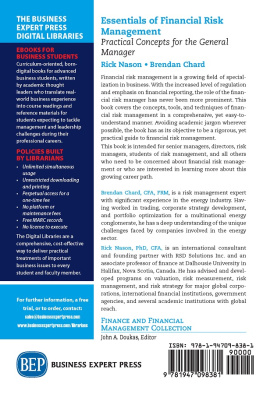INTRODUCTION
I have never been lost, but I will admit to being confused for several weeks.
Daniel Boone
So, youre a manager. Congratulations! You probably have lots of ideas about how to do things differently and better. Maybe youve already smoothly implemented some of them but have had less success with others. You know you could do more if you knew what to do and how to do it. Although youve had plenty of training in the skills that previous jobs have required, no ones really teaching you how to be a manager.
Youve had your share of bad managers, and you dont want to become one of them. Perhaps youve been fortunate enough to have had a great manager at some point in your career; someone youd like to be like now youre a manager yourself. We hope so, because thats the kind of manager wed like you to be.
In todays business environment, success as a manager means directing and balancing multiple objectives. Its not enough to know processes; you must also know what motivates and supports the people who make those processes happen. This book offers you some tools to understanding how people function within the workplace and to figuring out how you as a manager can help them grow to be more productive and successful so you will be, too.
ITS NOT FOR EVERYONE
Not everyone is cut out to be a manager. Many who are at the top of their professions are among the worst when it comes to managing other people because thats not where their strengths lie. Only by being truthful with yourself can you know if you are one of these people. And remember, it doesnt mean that youre less valuable than those in management; a business needs all of its constituents to succeed.
management: getting things done through others
THE SUPPORT OF YOUR STAFF
Although your job as manager may be new to you, having a manager is not new to the people who report to you. Youre replacing someone else. Employees may be relieved and happy to see you in your new position, or they may be disgruntled and unhappy that the previous manager has gone. Whether you have come up through the ranks, or you are new to the company, there are many lessons to be learned, and fast.
What with balancing the demands of upper management and the needs of your employees, you may begin to feel as if part of your job description reads, Walk on water. Dont worry its fine if your awkward sidestroke is what gets you to shore. Its okay to have limitations everyone does. You cant do everything, and you cant be everything to everyone no one can. What matters more is that you know your limits and can compensate for them.
WHEN YOU NEED A HELPING HAND
Those who excel in the skills of their jobs receive promotions to reward them for their abilities. The result is often managers who are not really people-people. Theyre skills-people. Are you a great accountant, programmer, sales representative, or production worker who has done so well in your job that youve been promoted to a management position? Are you feeling just a little bit uncomfortable with being in authority? Are you getting caught up in your own day-to-day responsibilities, still focused on doing a good job, and failing to recognize that managing means helping everyone else do a good job, too? Could you do with a helping hand?
your promotion is real-life proof that they, too, have a shot at moving up the ladder
its not good enough for managers to be skills-people; they must be people-people too
HOW TO USE THIS BOOK
This book is structured so that each of the 60 solutions can be absorbed in just a minute or less. Use it as an active resource when you find that you could do with a little advice. If you are that rare person who is committed to taking proactive steps, you might be inclined to read the book sequentially. To derive its full benefits, however, keep this book nearby and flip through it to quickly find solutions that work for the problem you might be facing.
The 60 solutions are arranged in six themed sections. Part One outlines what a new manager has to deal with in the first few weeks of the job; Part Two covers some of the everyday duties you will need to undertake; Part Three deals with managing communications with your staff; Part Four focuses mainly on the setting of goals and priorities; Part Five looks at ways you can inspire others; and Part Six troubleshoots. Let 60 Second Solutions Management guide you to become the best manager that you can be one who can be respected, trusted, and maybe even loved by your employees.
not getting on with a manager is one of the most commonly cited reasons for leaving a job
SOLUTION 1
KNOW WHATs EXPECTED OF YOU
I know the price of success: dedication, hard work, and an unremitting devotion to the things you want to see happen.
Frank Lloyd Wright
As an employee, you had a clear-cut definition of your role and responsibilities. The line around your job was easy for you and others to see, and it was obvious when your efforts went above and beyond the call of duty. As a manager, the and other duties as necessary part of your job description will be at the core of your daily activities.
its your job to help shape and deliver company standards and expectations to employees who not so long ago were your peers
Although daunting to begin with, you will no doubt enjoy the diversity of your new role, once you establish exactly what is expected of you.
WHAT YOUR EMPLOYERS EXPECT OF YOU
As a manager, you are the face of the company. You represent upper management to your employees. You will be expected to:
Reflect and support company goals and objectives, even if you dont agree with them.
Reflect and support your companys policies and procedures, even if you dont like them.
Communicate the companys needs to employees.
Give upper management feedback about how employees perceive and respond to company goals and policies.
A study by Entrepreneur magazine found that having managers they could respect topped the list of what employees want in their jobs. The survey concluded that the relationship employees have with their managers is a key factor in whether they stay or leave.
WHAT YOUR EMPLOYEES EXPECT OF YOU
Now that you are a manager, many employee expectations may strike you as unreasonable or unrealistic. Nevertheless, you will be expected to:
Know what they want, even if they dont say anything.
Understand that they have lives away from work that sometimes interfere with work.
Pick up the slack when they dont complete tasks on time.
Be available at any time of the day to answer questions and resolve problems.
Help them acquire new skills, even if that means they will then become qualified for different jobs.
Speak up for them when they have needs that require upper management decisions.








![Karsh Brad - Manager 3.0 A Millennials Guide to Rewriting the Rules of Management [[Elektronische Ressource]]](/uploads/posts/book/99578/thumbs/karsh-brad-manager-3-0-a-millennial-s-guide-to.jpg)






